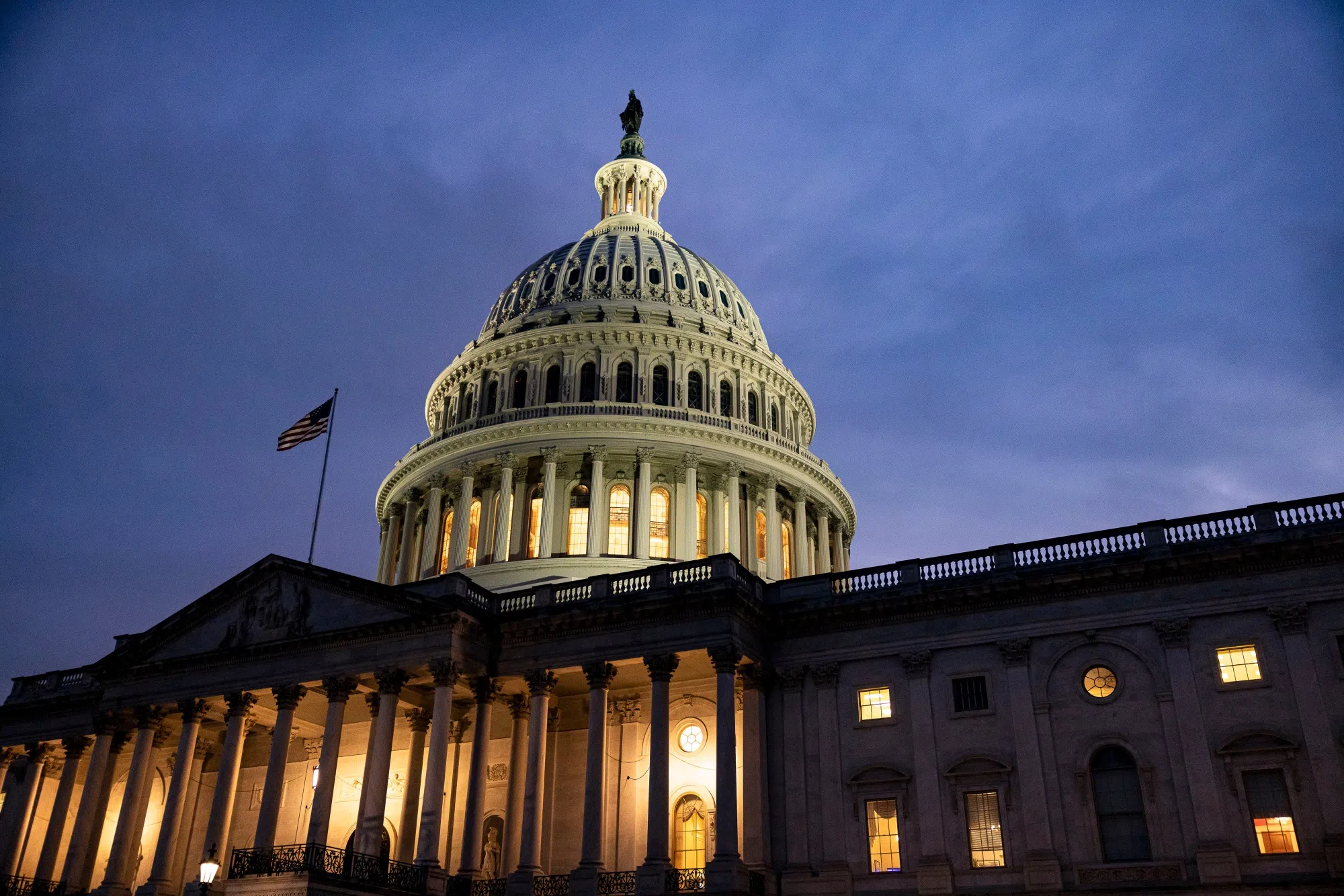AFTER struggling to win much sway in a Biden-era Washington, some of the biggest fintech firms are now getting a lot more facetime on Capitol Hill.
Groups that lobby for fintech companies have significantly ramped up their meetings with lawmakers, White House officials and financial regulators since Donald Trump won the election, according to sources familiar with the matter.
In one example, lobbyists from one firm attended at least 15 meetings last month between both the House and the Senate on fintech issues. Another entity spoke with financial regulators on more occasions in the last month than over the past half a year. The Financial Technology Association, with board members including Chime Financial, Block and PayPal Holdings, has also frequented Capitol Hill recently.
The discussions – occurring just as Trump appointed officials populate the US Treasury – have centred on two main areas of future fintech policy. One concerns the relationship fintechs have to have with traditional banks in order to offer their products and services. Another is the fate of the “open banking” rule – a Biden-era regulation seen as benefitting fintechs which banks have sued to block. That measure is not among those regulations that Republicans in Congress have signalled they are considering overturning, according to some of the sources.
“The shift in tone is encouraging,” said Phil Goldfeder, chief executive officer of the American Fintech Council, whose members include Affirm Holdings and LendingClub. “We are committed to helping ensure that regulatory frameworks keep pace with evolving consumer needs and technology.”
Fintech friendly
Trump has ushered in digital-asset initiatives that augur more openness to fintech firms, which proliferated by offering cheaper products and faster payment alternatives than banks. At the same time, the president has stoked debate over “debanking” at traditional lenders, saying recently that Bank of America and JPMorgan Chase have limited business with conservative clients – which both firms both deny.
BT in your inbox
Start and end each day with the latest news stories and analyses delivered straight to your inbox.
“There is much more opportunity for fintechs under the new leadership and the executive branch,” said Andy Barr, a Republican congressman who chairs a subcommittee on financial institutions and monetary policy.
The Office of the Comptroller of the Currency and the Federal Deposit Insurance, which have key roles overseeing financial services, declined to comment. Representatives for the Consumer Financial Protection Bureau (CFPB) and the Treasury Department did not immediately respond to requests for comment.
Fintechs have expanded in part because they face fewer regulations than banks, allowing them to churn out products and services without navigating the same slew of complex rules. Some of those regulatory gaps have raised concerns about the risks to consumers, which were underscored when banking-as-a-service fintech Synapse Financial Technologies filed for bankruptcy last year, indefinitely trapping millions of US dollars of Americans’ savings.
Some firms had tried unsuccessfully to get banking charters under the previous administration – a move that fuels growth by allowing them to receive deposits. Barr, for example, would like to see more clarity around the relationships fintechs have with banks.
The administration has signalled more willingness to work with the industry and address some regulatory challenges that held back growth, according to Sima Gandhi, co-founder of the Coalition for Financial Ecosystem Standards, a non-bank industry group.
“In the prior administration, the word on the street was that the regulators would only engage with banks,” said Gandhi, who is also an angel investor in fintech startups. “My hope is that within the next two years, we will see a lot more guidance for how to innovate.”
With their lighter scrutiny, banks have long seen fintechs as a competitive threat. JPMorgan chief executive officer Jamie Dimon said in a 2023 report that the banking system was shrinking relative to private markets and fintech, noting “many of these new players do not have the same transparency or need to abide by the extensive rules and regulations as traditional banks”.
One point of tension is the regulation on personal financial data rights – the open banking rule – which the CFPB finalised last year. Under that measure, consumers can demand, download and transfer their highly-coveted data to another lender or financial services provider for free.
While fintechs welcomed the move, banking groups sued the CFPB to block it, saying it heightens the likelihood of fraud and jeopardises data privacy. After the Trump administration swiftly defanged the CFPB, including pausing new regulations, a fintech trade group filed a motion to intervene in the lawsuit. Key Republicans have not signalled that they plan to use the Congressional Review Act to overturn the regulation, the sources said.
Some changes for a key House panel have also altered the tone. French Hill, a Republican representative from Arkansas, now holds the top role on the House Financial Services Committee and is well-known in fintech circles. Hill attended the annual conference of payments startup Stripe in San Francisco last April and has been spotted at other industry events.
Debanking debate
Hill has also pledged to investigate debanking, following complaints including from venture capital kingmaker Marc Andreessen that financial regulators were pressuring banks to unfairly target cryptocurrency. That debate escalated recently after Trump called out Bank of America CEO Brian Moynihan at the World Economic Forum in Davos, telling him “I hope you start opening your bank to conservatives.”
On Thursday, Senate Banking Chairman Tim Scott led a roundtable on debanking with committee Republicans and bank executives including Dimon, who said after that his firm does not debank on religious or political grounds. Still, he acknowledged “serious problems” and said debanking needs to be reviewed.
Republicans on Capitol Hill are now closely examining traditional lenders – which some conservatives had already criticised for restrictive policies towards guns and oil drilling.
Still, despite optimism surrounding fintech support, there’s concern among some venture capitalists which back fintechs that Trump’s tendency to swiftly devise and implement policy could have a negative effect on startups.
“Business is much more influenced by macro conditions than by regulatory temperature,” said Amias Gerety, a partner at fintech investment firm QED Investors and the former acting assistant secretary for financial institutions at the Treasury. “It’s natural to be very optimistic about the de-regulatory agenda – but it will be for nought if we end up in a trade war.” BLOOMBERG







